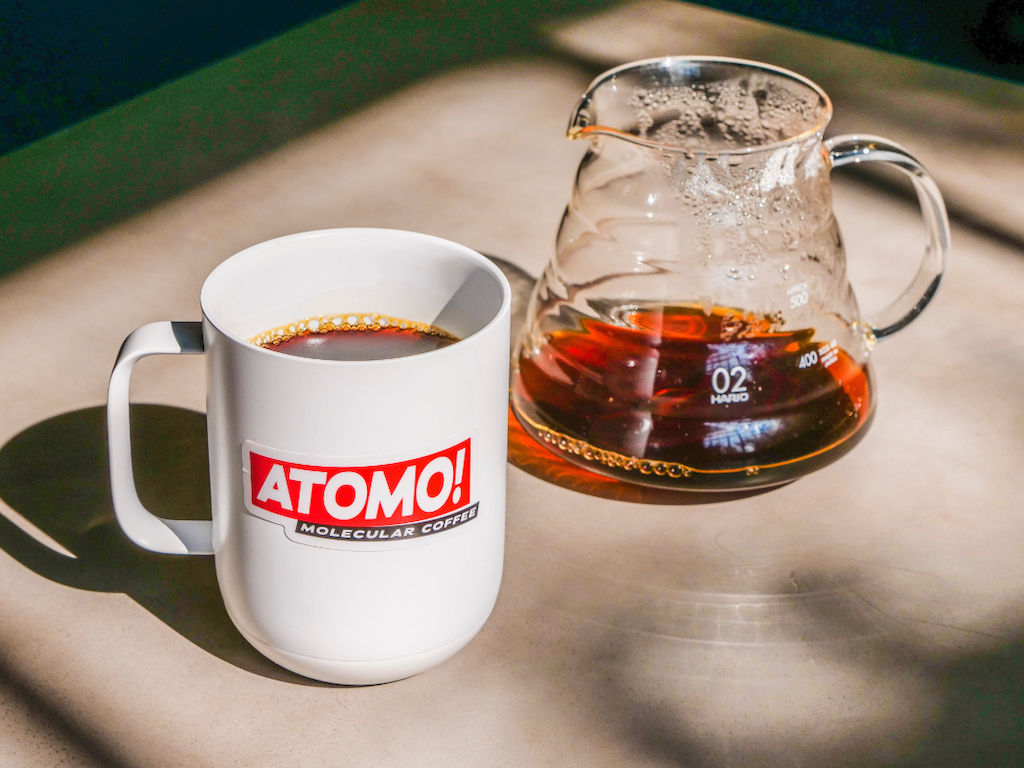3 Mins Read
In addition to bringing about frequent disasters, rising temperatures and extreme unpredictable weather events, the consequences of climate change extends to the staple foods we consume daily. One of these is coffee, which is already being affected by climate change and could be wiped out in the future – not to mention the environmentally taxing nature of mass production of the crop. Like the other Seattle-based coffee disruptor that changed the latte market forever, startup Atomo is hoping to shift coffee production by making molecular coffee without any beans at all.
Despite being grown in many countries, the majority of coffee blends come from two species – arabica and robusta – and both are now suffering from the consequences of climate change. Rising temperatures, pest invasions such as the ongoing locust swarms across Africa and fungal diseases are affecting coffee yields around the world, with a number of coffee bean growers abandoning their farms last year. It is estimated that by 2100, 50% of the land used to grow coffee will no longer be arable.
All the while yields are being threatened, global demand for mass produced coffee continues to grow and is driving a number of unsustainable and environmentally damaging practices. To meet the high demand, farmers are clearing out new land from forests to raise crops, destroying wildlife habitats in the process and contaminating topsoil due to synthetic fertiliser use.
To tackle both the problem of climate-induced food insecurity and environmental degradation, Andy Kleitsch and Jarret Stopforth founded Atomo in 2019, a startup making coffee in their labs without the need of a single bean. Using sustainable and upcycled ingredients such as watermelon seeds, stems and husks which contain the chemical compounds that make up coffee, and using fermentation, brewing and extraction technology, Atomo has created a natural, synthetic-free blend that mimics the average cup.
“It’s not rocket science, but it is complex in the degree of difficulty to find all the precursor compounds from upcycled materials to match the fingerprint of coffee,” Stopforth told Digital Trends.
The company is currently focused on creating three different kinds of nitro cold brews with varied levels of roast intensity, which will launch in a number of high-end locations in the near future. Eventually, the Atomo team hopes to be able to replicate different varieties of coffee, such as the arabica and robusta, based on differences in taste and aroma.
In addition to boasting a more eco-friendly production process and being climate resilient, Atomo believes that their lab-grown coffee replica product offers the advantage of customisation – from the levels of caffeine and even no caffeine to the degree of bitterness in a cup. In this sense, the startup’s technology stands out from other climate resilient coffee products, such as peanut coffee and acorn coffee, and is very much on-trend with the growing popularity of personalised “smart” food.
Despite the fact that 34% of all coffee production follows some form of voluntary sustainability standard, many large coffee plantations supplying big name brands are still tainted with abusive human rights practices, unfair wages and even child labour. Most recently, Starbucks and Nespresso have been engulfed in a child labour scandal involving a number of farms in Guatemala. Molecular coffee, which essentially involves biotechnology processes on ingredients considered food waste for most humans, avoids this.
Lead image courtesy of Atomo.




